日前,受到国际形势变革的影响,关于国外高校是否会取消SAT等标化成绩考核的事件闹得“沸沸扬扬”。
当大多数中国学生最引以为傲的标化成绩已不占优势的时候,该如何让孩子在未来不断变更的竞争中,以不变应万变,培养自己的核心优势呢?
今天,EdTA全国戏剧节广东区域负责人Andrew先生特意采访了Asia女士。听听Asia女士如何在戏剧的熏陶下找到自己的核心优势,从一个胆怯害羞的女生蜕变成如今落落大方、拥有独特光芒的教育者。
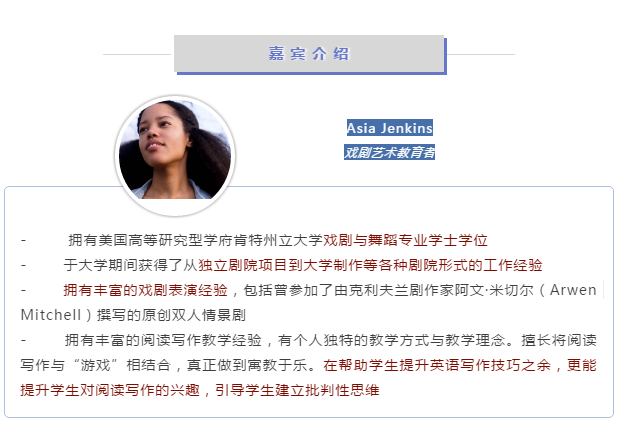
以下为Asia女士采访的正文内容,为了方便阅读,AP代表Andrew Peters先生,AJ代表Asia Jenkins女士。
对 话 嘉 宾
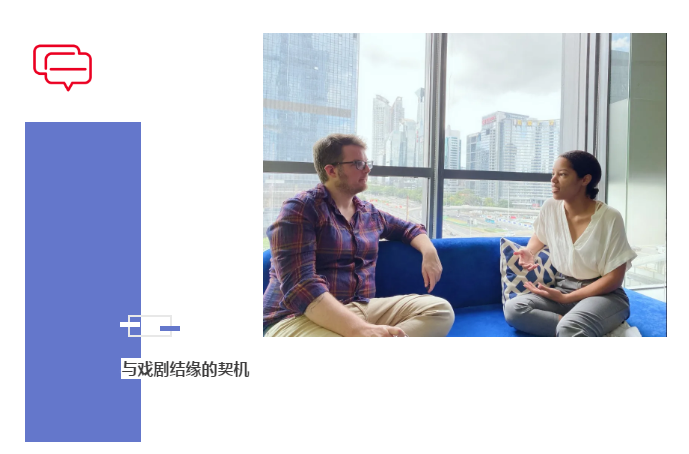
AP :So, I want you to tell me in your own words – what was your first exposure to drama? When did you first have the chance to experience it as a student?
你第一次接触戏剧是什么时候呢?回想你的学生时代,你与戏剧结缘的契机是什么呢?
AJ :So I didn’t experience drama as a student until college, but I actually – I missed the opportunity – moreso I chose to not take the opportunity. So where I went to a school, I went to a school that was pretty well off, you know? So going into your ninth grade year, you have the option. You can go to regular high school; you can join a school where they focus on marine biology – because we lived close the water in New Jersey – or you can join an acting school. So you would bus out, like, an hour earlier than everybody else, so you know, you’d learn acting and things. But I was so shy, in that, even though I wanted to do it, I was just, like, “How can I…” ...
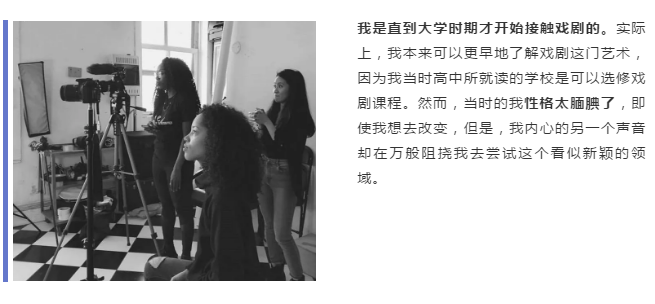
AP :So, your junior year in college, when did you participate? Was it a drama club? Or a class, or –
你提及到你是在大三的时候才开始接触戏剧的,是通过什么样的方式呢?戏剧俱乐部?常规的戏剧课程?
AJ:It was actually a class. Maybe an intro acting class, basically? Yeah. I did it to build self-confidence, and I did it to build my public speaking... At that point I had been doing three years of fashion merchandising. And I mean, I liked it, but I didn’t love it. I went into it thinking, “I like fashion, this could be a stable career choice.” You know? But I wasn’t happy. I was kinda floating through my college life. So I thought, “Let’s try an acting class. You have such stage fright – just push yourself into it!”
我是通过一门戏剧表演入门课程进入“戏剧圈”的。戏剧为我打开了另一扇窗,它让我更自信大方,公众演讲力也得到显著的提升。然而,你可能会很意外,我原本从事的行业跟戏剧是毫无交集的。
我曾经在时尚行业做了3年的品牌营销,实话说,我并不抗拒这个行业。我很清楚这是一个可以给我带来稳定收入的职业,但是在这个行业里,我并不快乐。在大学的头三年当中,我一直处于一个飘忽不定、懵懵懂懂的状态。于是,我开始“强迫”自己去做改变,去接触这个一直使我恐惧的舞台。

AP :So what was that first experience like? The first time you took an acting class, you step into this room… What was that feeling like?
所以,当你开始接触这个让你“又怕又爱”的全新领域,当你真正地踏入戏剧教室,你的心情是如何的呢?
AJ :It’s weird because theatre – and theatre outside of camera acting – there’s this community. It feels like the bonds are a big stronger than other concentrations, among students. Like the way they build friendships. So you’re stepping into this new class, but you’re stepping into this… territory of people being so cohesive…
You’re stepping into this new family. So I just remember being really shaky but making it through, like, “I didn’t die!” I enjoyed the class and enjoyed the teacher, and that feeling of having to constantly get up and do it over and over again.
那是一种无法用言语去形容的感觉。在戏剧这个领域中,个人表演仅占了很小一部分,更重要的是它给我带来的一种“社区归属感”。这样的一种归属感来源于戏剧课堂上不间断的合作排练。在这当中,不仅巩固了我与众多戏剧搭档之间的友谊,也在潜移默化中增强了我团队合作的意识。所以,当我第一次踏入戏剧这个陌生的领域,就意味着我进入了一个极具凝聚力的社区,我仿佛得到一个重生的机会,一个进入全新“家庭”的机会。
我依然清晰地记得,当我怀着忐忑不安的心情,在战战兢兢中完成第一个戏剧表演后的欣喜若狂,那是一种既惊讶又止不住狂欢的复杂情绪。就在那一瞬间,点燃了我内心对于戏剧表演的渴望。我开始爱上戏剧,爱上戏剧导师的教学,渴望在一次次的戏剧表演中寻求一个崭新的自我。
AP :Did you find that you were influencing decisions that the playwright was making? I feel that we don’t really get to teach the new play development process as much in our classes, but I still think it’s important to understand that, in creating a play with a playwright, it is a living thing.
访问中你说过,你曾参与演出由一位克利夫兰剧作家撰写的原创双人情景剧。从一位戏剧表演者的角度来看,你是否认为表演者能够对剧作家的创作带来一定的灵感和影响力呢?我始终认为,一个剧本的成功是剧作家和戏剧表演者一起合作创造的结果。
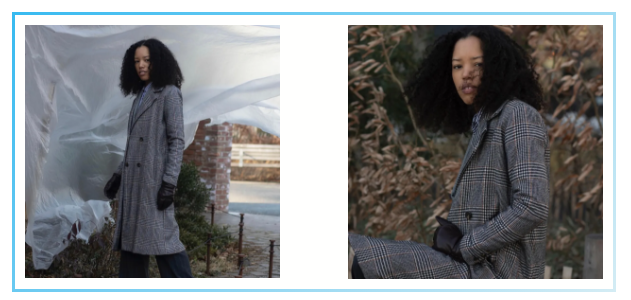
AJ :Definitely. You have the playwright’s vision, you have the director’s vision, an then you have you and your scene partners’ vision – depending on how many people are in the play - and so you get the premise of the play. [In this example] I’m playing an in-the-past abused slave woman, my partner is playing an in-the-future slave woman, creating this connection of pain and solidarity among women. So, you research on your own, you bring your own feeling to it, but then you have the playwright right there telling you what she was thinking as she was writing it. What inspired her. So you’re collaborating together. That’s what theatre should be.
这个观点我十分同意。在我看来了,一位出色的戏剧表演者必须有同理心。他需要学会通过剧作家、导演、演出搭档等不同角色的角度去看演出整体,只有这样,他才能够主动地体会到其他人的情绪和想法,进而更顺利地施展自己的戏剧才华。比如,我曾经扮演过一位被虐待的女奴,我当时的搭档扮演的是一位未来的女奴,我们的角色代表了女性之间所经历的痛苦与在痛苦中建立起心心相惜的情感链接。为了完成这类角色,我必须在做好前期资料搜索的基础上,在与剧作家不断沟通的过程中,才能更好地赋予我所扮演的角色丰富的情感。这是一个增强沟通力和团队协作力的过程。
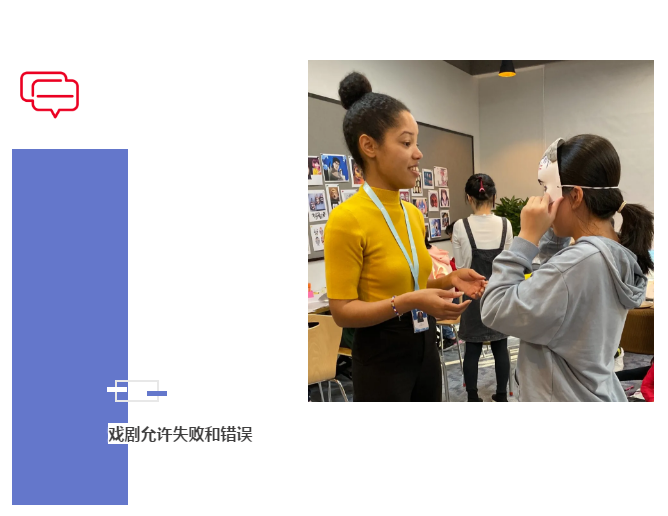
AJ :I think I always planned to bring it in. I don’t think I ever would not. I’m very analytical, and so I think there’s a lot you can learn from drama outside of just acting. It’s breaking ideas down, it’s analyzing, understanding the beginning to end. So, for example, in Public Speaking classes, involving your voice and your body… what you want the listener to get from that. I think drama plays a big part in that.
我可以很笃定地说,我一直尝试把我在戏剧教育中所学习到的知识,所培养到的能力融入到现在的教学中。我非常善于分析,我想这个能力也是在长期的戏剧演出中所培养出的软实力之一。戏剧能够帮助你将冗长的文本一一分解,并且分析文本背后的意义,以及学会充分运用他们分析的结果。比如,在公共演讲中,你必须运用你的声音和肢体语言,你必须懂得以情攻心。而这种种的技巧,正是戏剧表演所强调。
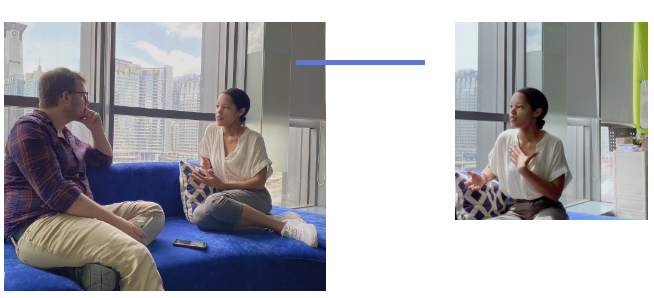
AP :So based on having studied it and based on your vision of taking drama into a classroom… if someone lays that out like, “Drama isn’t an academic subject,” how would you respond?
作为一个专业的戏剧表演者,对于一些人提出 “戏剧并非一门正式的学科”这类观点,你有什么看法呢?
AJ :I would say that if you can’t take this play, this piece of text, and fully dissect it, you’re never going to be able to create a full, rounded character. Yes, drama is fun, and drama is active, and you’re ‘playing’… but you really have to understand what these words mean, and that’s something that I’ve found with the kids. They’ll say the words, but they don’t know what the words mean. So you are being ‘taught’. The more that you read, the more that you’re learning. And then to apply that communication, I think that it makes them understand what they’re reading ten times more. You have to be actively doing something to be actively understanding it.
对此,我想说,在戏剧表演中,如果你无法理解一个剧本、一段文字并且详细剖析它,你永远不能创造出一个完整的、性格鲜明的角色。没错,戏剧是有趣的,戏剧是生动形象的,你是在“玩”……但是你必须切切实实地理解文本,甚至是每个词背后的含义。在我教学的过程中,我发现许多孩子的语言能力完全没有问题,但是他们却不知道自己所说的文本背后的蕴意。所以,戏剧是在“玩中学”,在“玩”中不断强化你的解决问题能力、语言能力、理解能力、表达能力等等软性竞争力。
AP :What is something related to who you are as a person that you hope to pass along to them? Based on the stories you told me about your beginnings and about how drama influenced you, what do you hope to do in terms of changing those students?
作为一名戏剧教育者,一名在戏剧熏陶之下逐步蜕变成长的人,你希望通过戏剧传达给学生什么理念呢?
AJ :I think – and I keep saying this – ‘try.’ I think a strength of mine is, even when I’m feeling less confident in what I’m about to do, I still do it anyway. If an opportunity comes up, if somebody asks me to do something, I say yes before I can say no. If you give yourself the time to say no, you’re never gonna do it. But once you do it, you realize it’s not that bad. It wasn’t that terrible. And then you have the confidence to do more. So, join an acting class, join an acting school, try a webseries, move to a new country without knowing anybody, or …
我一直秉承一个观念,那便是 “不断尝试”。我认为自己优势之一是,即使我对自己即将要做的事情缺乏信心,我还是会持之以恒,不轻言放弃。假如别人给予了我一个机会去尝试我之前并未接触的领域,我会欣然地接受这个挑战。如果你第一时间便拒绝,那么你将永远不去挑战自我。假设你一开始做了,你便会意识到,事情并非你想象中那么艰难,那么你的自信心就会逐渐强化。所以,就像我一样,去接触一个全新的领域,去尝试主导一个网剧,甚至是搬到一个完全陌生的国家……我相信这一次次的突破自我的精神,与我的戏剧教育背景分不开联系。
For me, it’s dependent on the students. Because I’m very much of the school of thought that education should be tailored to the students to a certain degree. So for example, if there’s a kid who is highly intelligent - my focus for those students it to push them further, to advance their acting skills. And for kids who are just starting and don’t really get it [understand drama], I want them to build self-confidence. I want them to leave with the freedom of “no-fear”. So that they know this is a space where they can try, you can fail, but you’re going to get back up and you’re going to keep trying. Building this community together. Because even if you don’t pursue acting as a career, I think that it’s a very good basis of connections outside of things, for other things...
对我而言,学生未来的发展完全取决他自己。我非常相信教育理应因材施教,教育的根本目的应该是帮助孩子成就更好的自己。例如,如果理解能力非常强的孩子,我的关注点会是如何引导他们进一步突破自己,提高表演技巧。对于那踏入戏剧圈的孩子,我会希望他们能够战胜舞台焦虑症,逐渐建立自信,我希望他们抱着一种“尝试”的心态去接受这项新的挑战,在之后接触新的领域,他们便可以“无所畏惧”了。我希望孩子们知道,戏剧课程是一个可以给他们不断尝试、不断试错的空间。失败可以是我们尝试过程中一部分,但是你必须学会从失败中反思,并且重新站起来,再继续尝试。即使你不打算把戏剧当成未来的职业,我相信,戏剧依然是一门可以让你惊喜不断,可以让你不断成长的艺术。
免费留学评估




